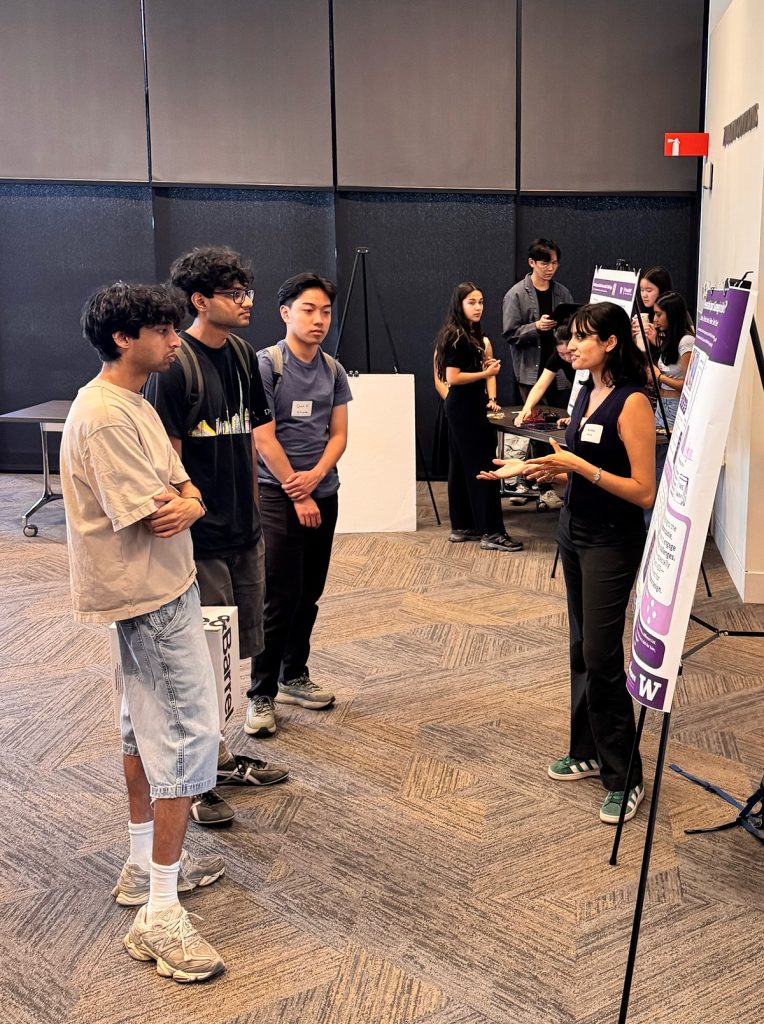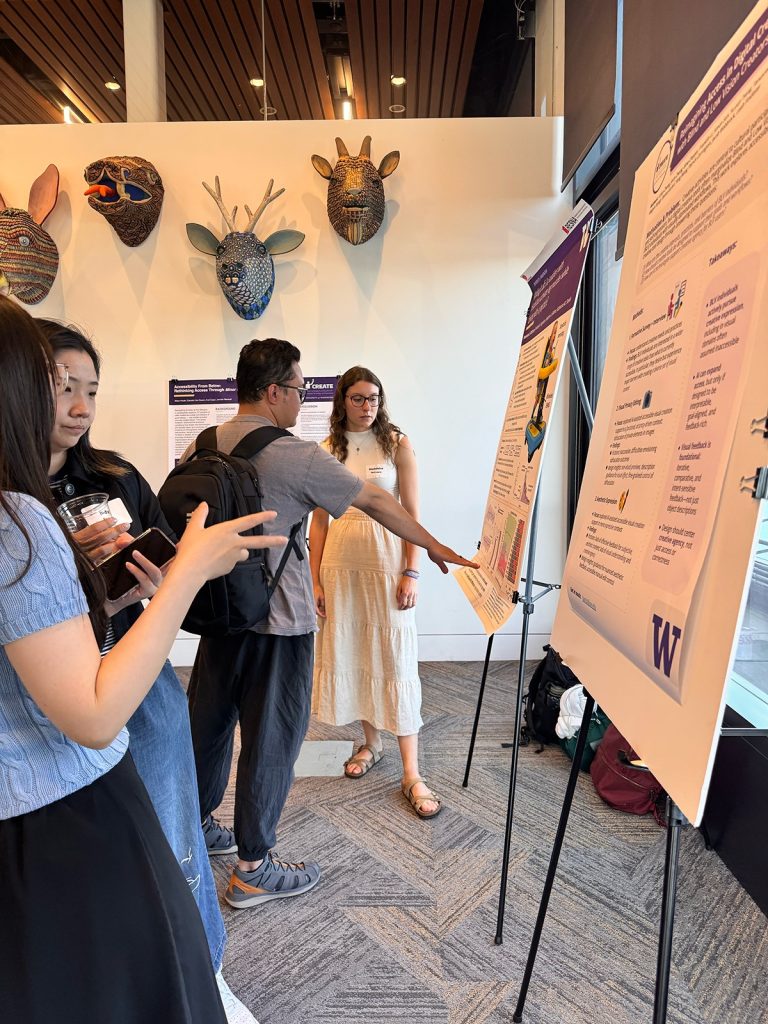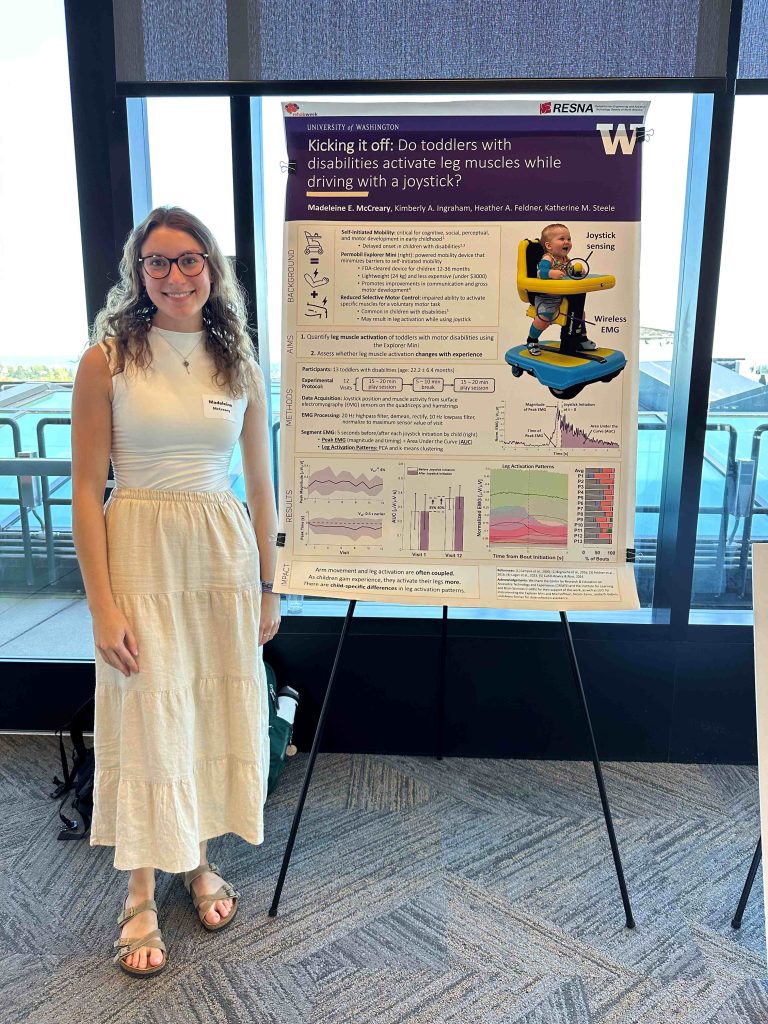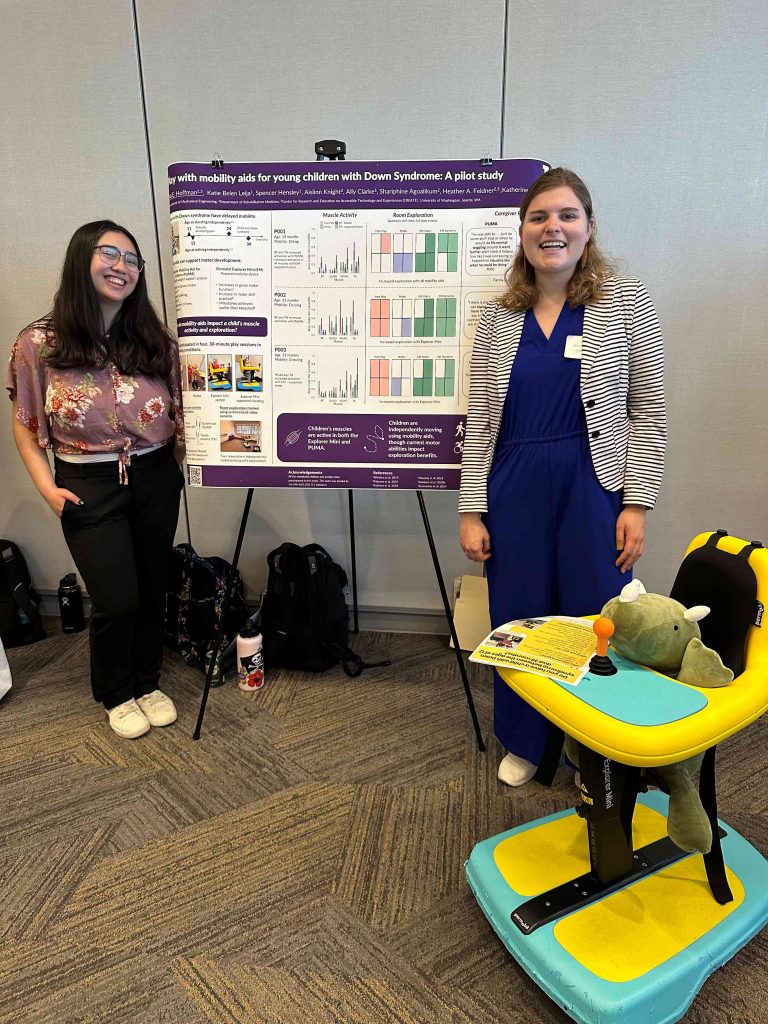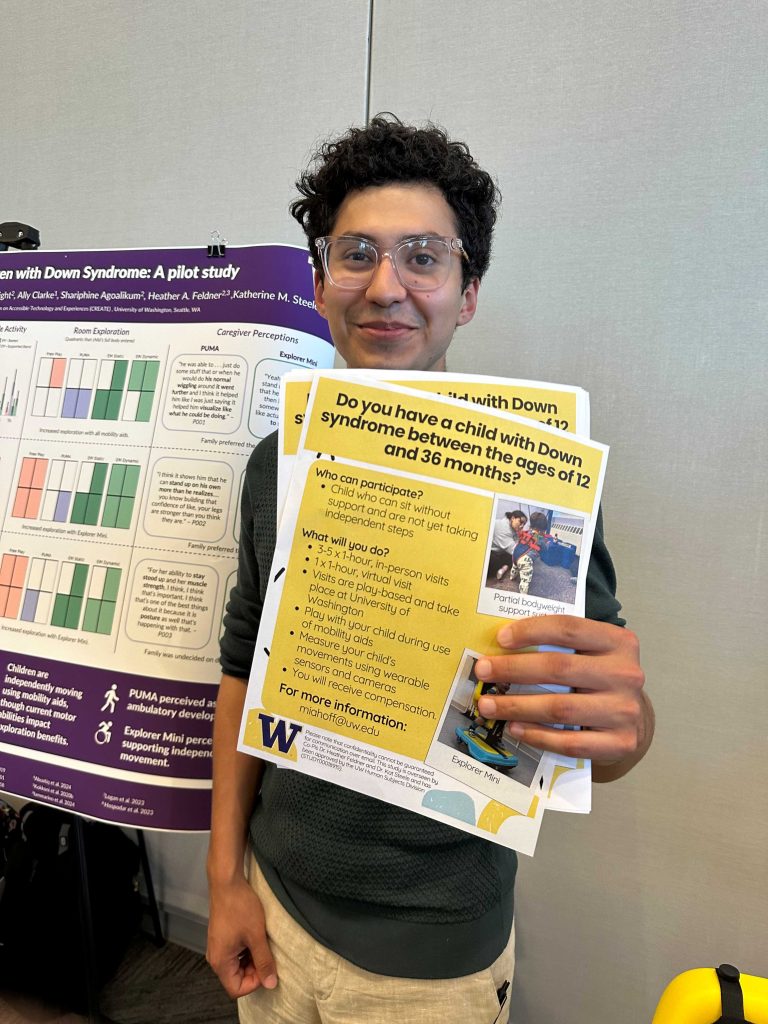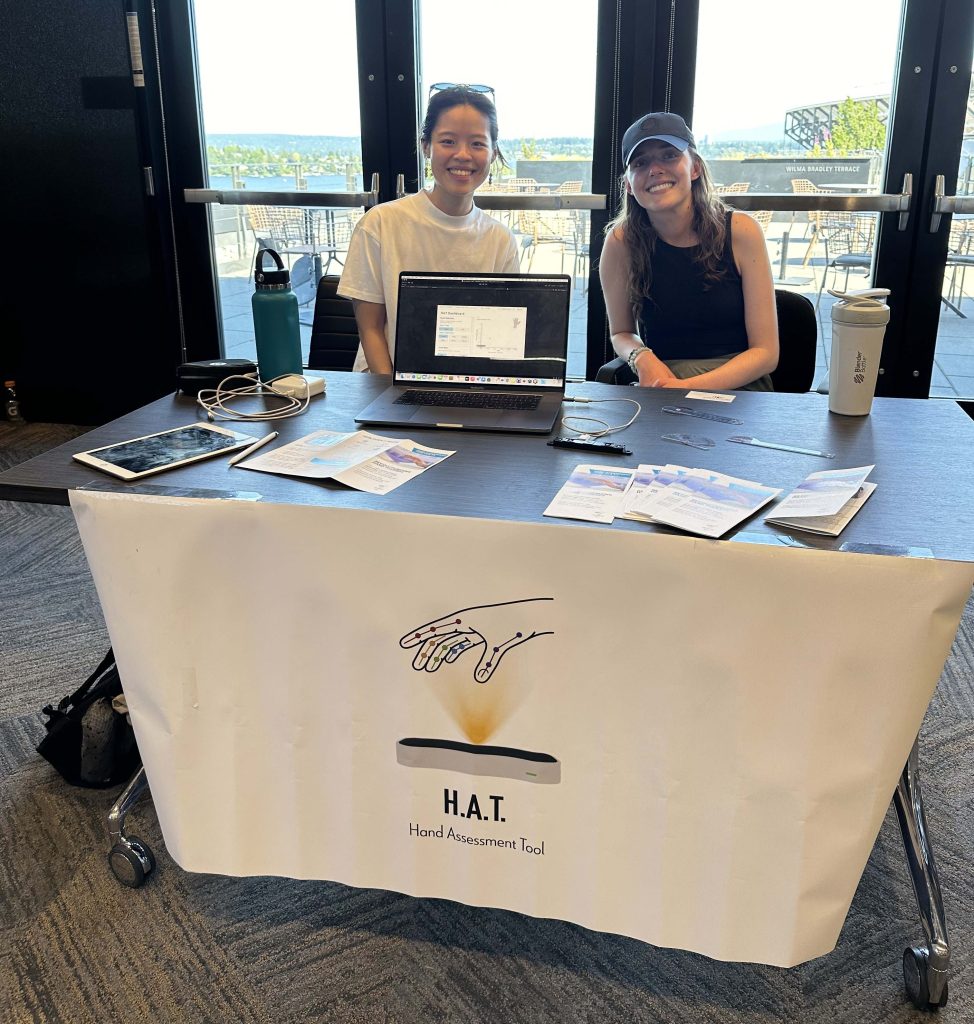The Center for Research and Education on Accessible Technology and Experiences (CREATE) recently hosted its Spring 2025 Research Showcase and Community Day, bringing together researchers, industry leaders, and community members dedicated to advancing accessibility. Co-sponsored by HuskyADAPT, the event highlighted cutting-edge work that bridges technology and inclusion.
Our lab was proud to be part of the showcase, with several students and collaborators presenting their research. Alisha Bose presented a poster on How Does Clinical Presentation Impact Gameplay in Early Intervention? This project explored how children’s unique needs influence their interaction with accessible play tools like the Switch Kit.
Madeleine McCreary presented Kicking it Off: Do Toddlers with Disabilities Activate Leg Muscles When Driving with a Joystick? This study examined leg muscle activation in toddlers using powered mobility devices to inform interventions that support play and development.
Mia Hoffman, Spencer Hensley, and Katie Belen Leija presented Mobility Aids to Support Independent Play for Young Children with Down Syndrome. Their work evaluated how mobility devices support early movement and play in children with Down Syndrome.
Alexandra (Sasha) Portnova showcased the H.A.T. – Hand Assessment Tool, a camera-based tool that measures finger range of motion to support hand therapy practices.
These projects reflect CREATE’s mission: to make technology accessible and to make the world accessible through technology.

